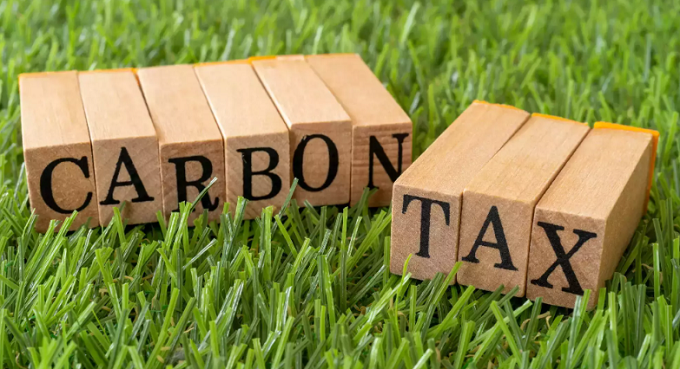
Efforts to combat carbon tax
- Business
- April 24, 2023
The Indian government is set to conduct a sector-by-sector analysis on carbon emissions, as developed countries gear up to introduce carbon taxes on imports. The analysis will help the government identify sector-specific counter-measures to mitigate the overall impact on Indian exporters. The EU plans to start collecting data on a company-by-company basis in October and impose the carbon border tax from January 1, 2026. The UK has also proposed introducing a carbon border adjustment mechanism early and mandatory product standards by 2027 to prohibit the import of products with high emission intensity. Canada has announced plans to develop its own mechanism, while the US and Japan have indicated their preference for similar taxes.
The steel sector alone contributes nearly 7-8% to global carbon emissions, with India accounting for around 12%. Under the EU’s carbon border tax, imports from countries with higher carbon dioxide per tonne of crude steel will face a tax. India’s per tonne emission is 2.5 tonnes, much higher than Europe’s 1.8 tonnes, leading to estimates of a 20-35% tax on select imports from India starting January 1, 2026. The products that could be impacted include cement, chemicals, glass, iron and steel, non-ferrous metals, non-metallic minerals, paper and pulp, refining, fertiliser, and electricity. The carbon tax will vary depending on the product and production process, with rates ranging from 20-35% for most items.
The senior commerce ministry official has stressed the need for sector-specific counter-measures, and the initial findings of the study will be significant as the next round of talks on a free trade agreement with the EU will be held in June. The report suggests that India’s iron and steel exports to the EU will face extra scrutiny under the mechanism. While the Indian steel industry is working towards transitioning to net zero and decarbonisation, it will need to be extra careful with the CBAM legislation and transition towards green steel.
To counter the impact of the carbon border tax, Ajay Srivastava, co-founder of the think-tank Global Trade Research Initiative, has suggested converting India’s import duties and GST on items such as steel, coal and aluminium into carbon taxes. He also proposed setting up a carbon trading mechanism as a pre-condition, which could reduce the net impact of CBT and become zero in some cases. The report concludes by suggesting that India should consider designing a similar scheme to counter CBT, as it did when the US imposed import duties on steel and aluminium.
